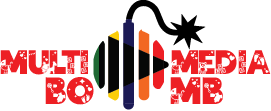TRAVEL
People and Daily Life in Korea
To an outsider, Korean religious structures can be confusing. While adherents to the Confucian faith are small in numbers, the ethical standard of Confucianism pervade all aspects of Korean society. This dates back to the early days of the Yi Dynasty 600 years ago.
The closest Korea has to its own religion is Chondogyo, combining various aspects of the Buddhist, Confucian and Tao beliefs. Buddhism in Korea stems from the Mahayana line, having first arrived about 1700 years ago.
In South Korea Christianity is the dominant religion, despite being a late arrival to the peninsula. Over 200 years ago Jesuit missionaries working in China crossed into Korea, bringing their version of Catholicism to the people. Koreans enthusiasm for the faith made the Yi Dynasty feel so threatened that a campaign of persecution was launched against the Jesuits. Protestant missionaries arrived in the 1800s, spreading their faith by practical methods such as establishing schools and hospitals.
Read Only:
https://ekonty.com/read-blog/20071_korean-film-industry.html
https://ekonty.com/read-blog/20072_learn-korean-essential-principles-in-learning-korean.html
Officially, North Korea has no religion as it is considered contrary to to communist ideology. However, as was seen in other communist countries this is no barrier to people retaining their faith. Buddhism, which can be practised individually and in private is the strongest religion in the North.
The people of both North and South Korea are overwhelmingly of a homogeneous Korean background. The evolution of the Korean people goes back more 9000 year with little input from other racial and cultural groupings. The strongest influence came from the Chinese and the Mongols, both of whom held sway over the Korean peninsula at various times over centuries. While there was a strong ethnic Japanese population in Korea during Japan´s occupation from 1910 to 1945, this had minimal effect on Korean culture.
Nobody knows for certain how the Korean language, which is unique to the Korean peninsula, evolved. Spoken Korean is most closely related to Japanese, although even then is has many distinct differences. The syntax is similar to Chinese: however, it does not use tones to discern meanings a Chinese does. Korean writings began 13000 years ago, but initially used Chinese rather than a distinctive Korean style. Hangul, the Korean phonetic alphabet, was devised around 500 years ago. For an outside observer Korean script tends to be less complicated than that of Japan or China.
Daily life varies enormously for Koreans depending on which side of the 38th parallel they live. The average North Korean lives a fairly bleak life under an unrelenting communist dictatorship. Where once North Korea was fairly self-sufficient, today it is widespread starvation and malnutrition. Agricultural workers live in communities of collectivised farms. Everyone works to produce food for the rest of the population. Non agricultural work centres primarily on heavy industry, mineral extraction and military service. The state controls all aspects of life. South Korea is vastly different, having a private-enterprise economy, although with some state intervention at various levels. The average South Korean works a full day Monday to Friday and half day on Saturday.
Read Only:
https://ekonty.com/read-blog/20076_what-makes-korean-food-healthy.html
https://ekonty.com/read-blog/20078_3-simple-steps-to-learn-korean-words.html
https://ekonty.com/read-blog/20080_have-you-been-thinking-of-learning-korean-online.html


